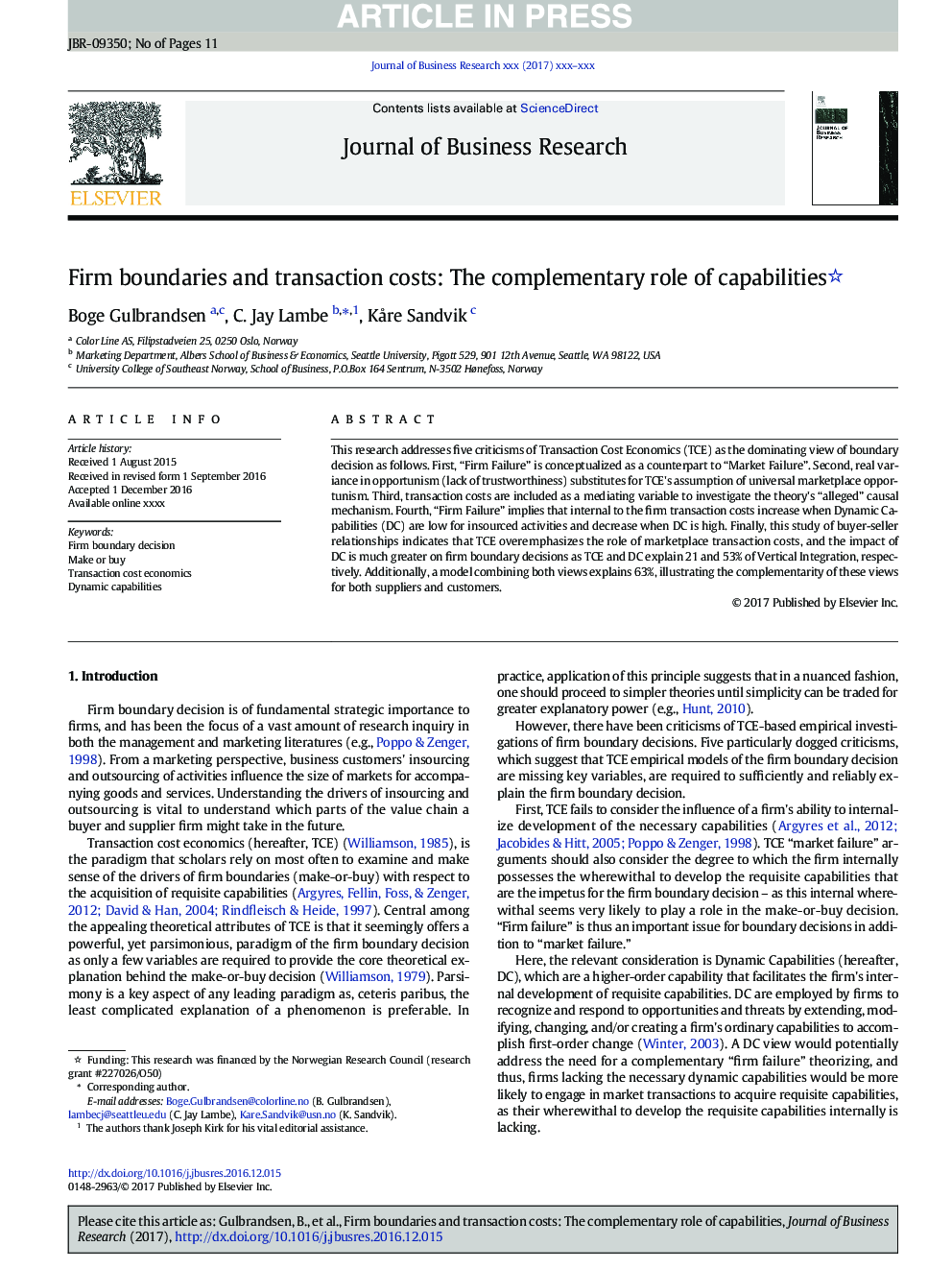| Article ID | Journal | Published Year | Pages | File Type |
|---|---|---|---|---|
| 5109564 | Journal of Business Research | 2017 | 11 Pages |
Abstract
This research addresses five criticisms of Transaction Cost Economics (TCE) as the dominating view of boundary decision as follows. First, “Firm Failure” is conceptualized as a counterpart to “Market Failure”. Second, real variance in opportunism (lack of trustworthiness) substitutes for TCE's assumption of universal marketplace opportunism. Third, transaction costs are included as a mediating variable to investigate the theory's “alleged” causal mechanism. Fourth, “Firm Failure” implies that internal to the firm transaction costs increase when Dynamic Capabilities (DC) are low for insourced activities and decrease when DC is high. Finally, this study of buyer-seller relationships indicates that TCE overemphasizes the role of marketplace transaction costs, and the impact of DC is much greater on firm boundary decisions as TCE and DC explain 21 and 53% of Vertical Integration, respectively. Additionally, a model combining both views explains 63%, illustrating the complementarity of these views for both suppliers and customers.
Related Topics
Social Sciences and Humanities
Business, Management and Accounting
Business and International Management
Authors
Boge Gulbrandsen, C. Jay Lambe, KÃ¥re Sandvik,
